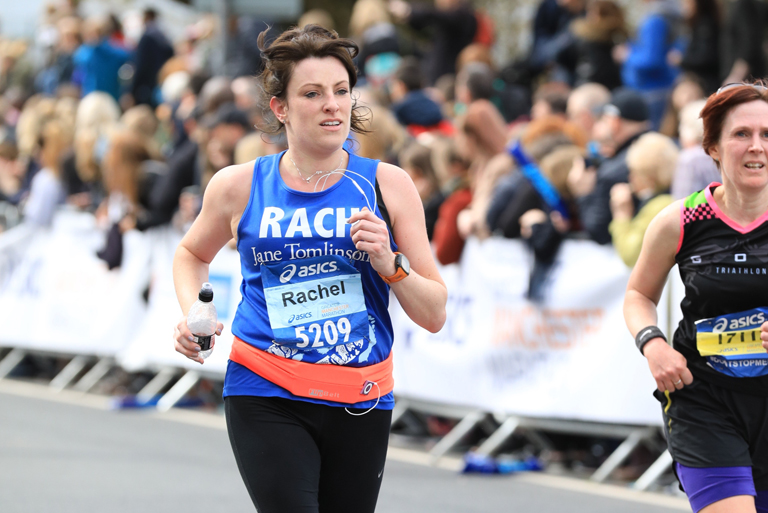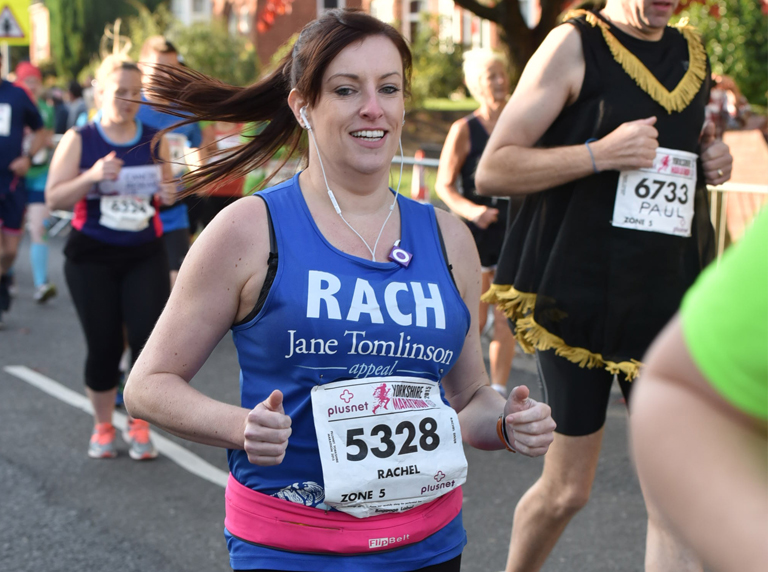Training for your first marathon is exciting, a little daunting, and absolutely life-changing. Running 26.2 miles might seem impossible at first, but with a solid plan, consistency, and a bit of stubborn determination (trust me, I’ve got plenty of that), you can absolutely do it.
While the marathon itself is the big day, it’s the weeks and months of preparation that really test you – both physically and mentally. But don’t worry, I’ve got your back! Here are my top tips for training for your first marathon.
Why run a marathon?
People decide to run a marathon for all sorts of reasons. Maybe it’s to tick something off your bucket list, raise money for charity, or prove to yourself that you can do something truly challenging. Whatever your reason, marathon training teaches you discipline, patience, and just how strong you really are.

Here are my top tips for training for your first marathon:
Your training plan is your roadmap to marathon success. Look at your week ahead and schedule runs around work, family, and other commitments.
Bupa offer great free beginner-friendly and intermediate marathon plans. Most marathon plans are 16 weeks long, but if you already run regularly, a 12-week plan might work too.
Stick to your plan as best you can, but don’t stress if life gets in the way – flexibility is key. Missing the odd run won’t ruin your race, I promise.
Make Running a Habit
Consistency is everything when it comes to marathon training. Aim to run 3–5 times a week, depending on your goals and experience level. Schedule your long runs consistently, ideally on the same day of the week your marathon will fall on, to mimic race-day conditions.
Remember, consistency matters more than speed or distance. You’re building endurance, not chasing personal bests at this stage.
Keep a Conversational Pace
If you can’t hold a conversation during your long run, you’re going too fast. Long runs are about building endurance and getting used to time on your feet.
Some days it will feel hard, and that’s completely normal. Not every run will be perfect, but every single one helps you get closer to that finish line.
Experiment with Nutrition During Training
Use your training runs to test different breakfasts, energy gels, and hydration strategies. What you eat and drink can make or break your marathon.
Find out what works best for your stomach – some gels can be tricky for first-timers. Practising your nutrition and hydration during long runs ensures no nasty surprises on race day.
Cross-Training and Strength Work
Marathon training isn’t just about running. Adding a couple of cross-training sessions each week can make a huge difference to your overall fitness. Cycling, swimming, yoga, and Pilates are brilliant low-impact options that help build endurance without extra strain on your joints.
Strength training is also a game-changer for runners. Focus on exercises like squats, lunges, planks, and bridges to build strong legs and a stable core. You don’t need fancy equipment either — bodyweight workouts at home work perfectly.
Train Your Mind Too
Marathon training isn’t just physical – your mindset plays a huge part. On long runs, practice positive self-talk and visualisation. Imagine yourself running strong and crossing that finish line.
If you hit a mental wall during training (and you will!), remind yourself why you started. A good playlist or a running podcast can really help keep you motivated.
Focus on Your Longest Training Run
Most marathon training plans peak at around 20–22 miles, so don’t panic if you never hit the full 26.2 before race day. Those final few miles come down to mental strength, race-day excitement, and adrenaline.
These long runs build confidence and prepare your body for what’s to come. Embrace the tough days — they’ll make race day feel easier in comparison.
Taper Properly Before Race Day
Follow your plan’s taper schedule in the final two to three weeks before the marathon. This is when you reduce mileage, prioritise rest, and give your body a chance to fully recover.
Enjoy the extra time. Use it for gentle stretching, foam rolling, or a short recovery jog. You’ve done the hard work – now it’s about arriving at the start line feeling fresh and confident.
Don’t Forget Recovery
Rest days are just as important as your training runs. They’re when your muscles rebuild and get stronger. Make sure you stretch, hydrate, and refuel properly after your longer runs.
Investing in recovery tools like foam rollers, massage guns, or even a pair of OOFOS recovery sandals can help keep your legs happy.
Race-Day Attire Tips
Wear the gear you’ve trained in to avoid any race-day chafing surprises. Write your name on your top — strangers love cheering you on by name, and that encouragement can really lift you during the tough miles.
Bring a small running belt or waist pack for gels, tissues, and any other essentials. Keep things simple and familiar – now isn’t the time to experiment.
Embrace the Marathon Experienc
Break the course into sections — think 5-mile chunks or landmarks — to make it more manageable. Smile for the photographers, soak up the atmosphere, and enjoy every moment. You’ve earned that medal, and the pictures will prove it!
Remember, not every training run will be perfect, and some days will test you. That’s

Be Race Day Ready!
Personalise your running vest with your name or a fun message using iron-on letters. Perfect for extra motivation, recognition on the course, and a confidence boost!
Stay on Track with Runna
If you want an easy way to structure your training, I recommend the Runna app. It’s perfect for first-time marathoners, offering personalised plans that adapt to your schedule and fitness. You can track your progress, stay motivated, and never miss a key workout. Plus, you can use my Runna discount code RWR2 to get started. Trust me, it’s a game-changer for marathon training!
You got this!
Running your first marathon is a journey full of highs, lows, and everything in between. But when you cross that finish line, it’s all worth it. You’ll surprise yourself with what you’re capable of, and who knows – you might even sign up for your next one before your medal’s barely off your neck.


